Butterflies, Bees, and Manatees, Oh My!
The last two weeks have been super exciting in the life of the SFS Peru cohort! We’ve gone on field excursions (FEXs) and had guest lecturers about several animal taxa that are vital to the Amazon region: butterflies, manatees, and bees. From a bio business, to a rescue center, to our very own campus, all of these hands-on experiences well represent the very reason we all chose to study with SFS.
On March 14, we gathered for a very early 5am breakfast; we would be traveling via boat that day to the Mariposario Morphosapi, a butterfly farm near Iquitos, and we wanted to get there early so we could participate in their daily caretaking activities! The farm breeds 16 different butterfly species local to the Amazon, and in addition to selling these butterflies, they also promote tourism and environmental education. This business is 100% owned and operated by people of the San Rafael community where the farm is located, and they work heavily with environmental education with the youths within and without the community. Our group was fortunate enough to learn hands-on the daily tasks involved with taking care of the farm—at every stage of the butterfly life cycle! First, we set out a delicious meal of fermented plantains for the adult butterflies to eat; then, we collected eggs and caterpillars from the leaves of the Heliconia plant, their favorite; finally, we measured the diameter of each teeny-tiny egg and the length of each caterpillar. We even got to help the farm’s operation by teaming up to help package the caterpillars in a Tupperware with a big leaf to eat, like a butterfly assembly line!
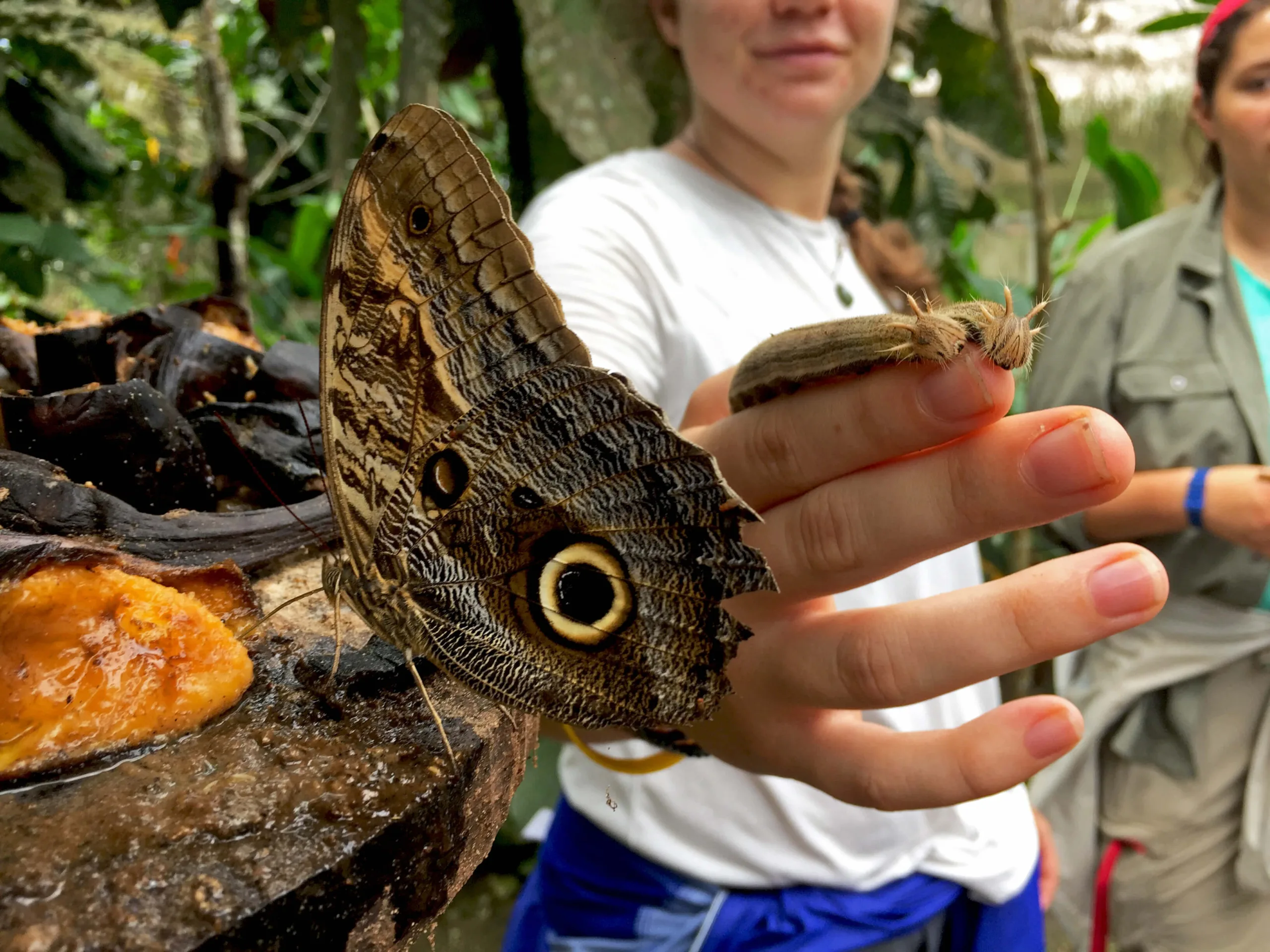
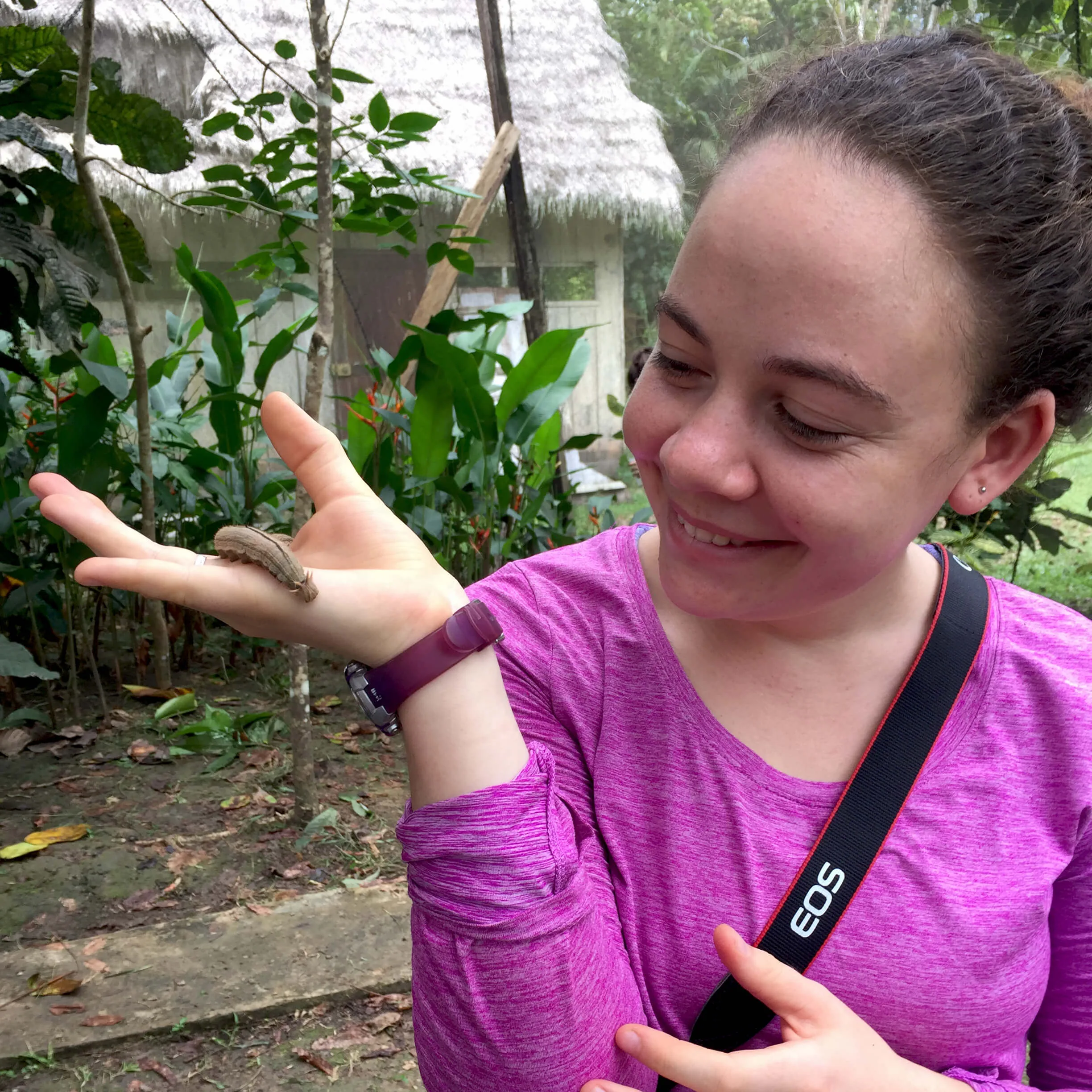
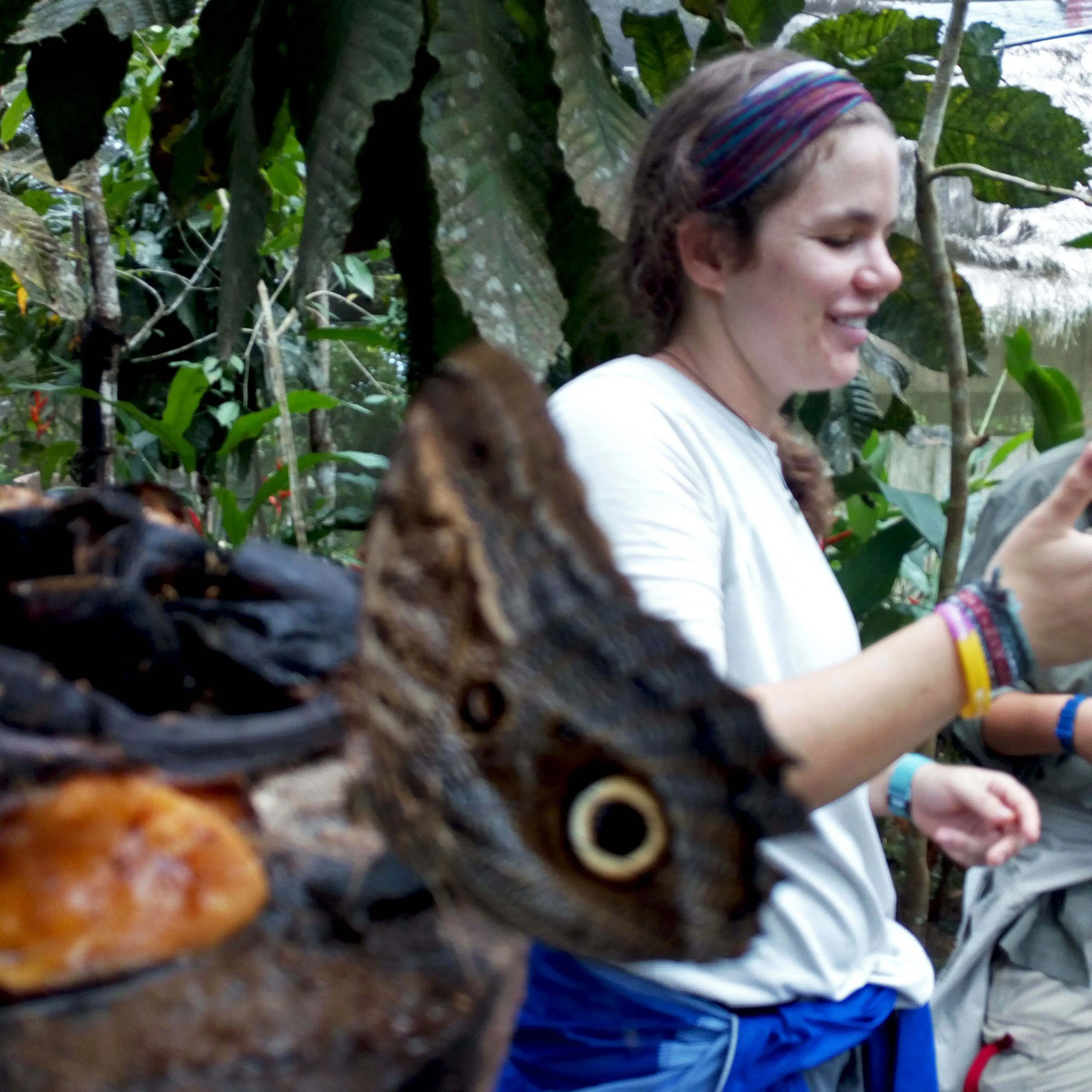
Photo courtesy of Brielle Seitelman
Just two days later, we drove a short distance up the highway toward Iquitos to the Amazon Rescue Center to learn all about their work with rescuing that most noble of aquatic species: the manatee. Founded in 2007, the Amazon Rescue Center strives to combat a serious conservation issue of our region. Adult manatees are sometimes hunted for food in the Amazon’s tributaries, and baby manatees may end up as bycatch. People may try to keep or sell the babies as pets, but generally don’t have the knowledge or resources to take care of them properly—and that’s where the Amazon Rescue Center comes in. The Center nurses these babies back to health, and once they are big and healthy enough, releases them in one of two protected areas to ensure their survival. We were lucky enough to see one of these baby manatees being fed—too cute!! It’s so cool being able to experience for ourselves the important conservation work being done by organizations like the Amazon Rescue Center.
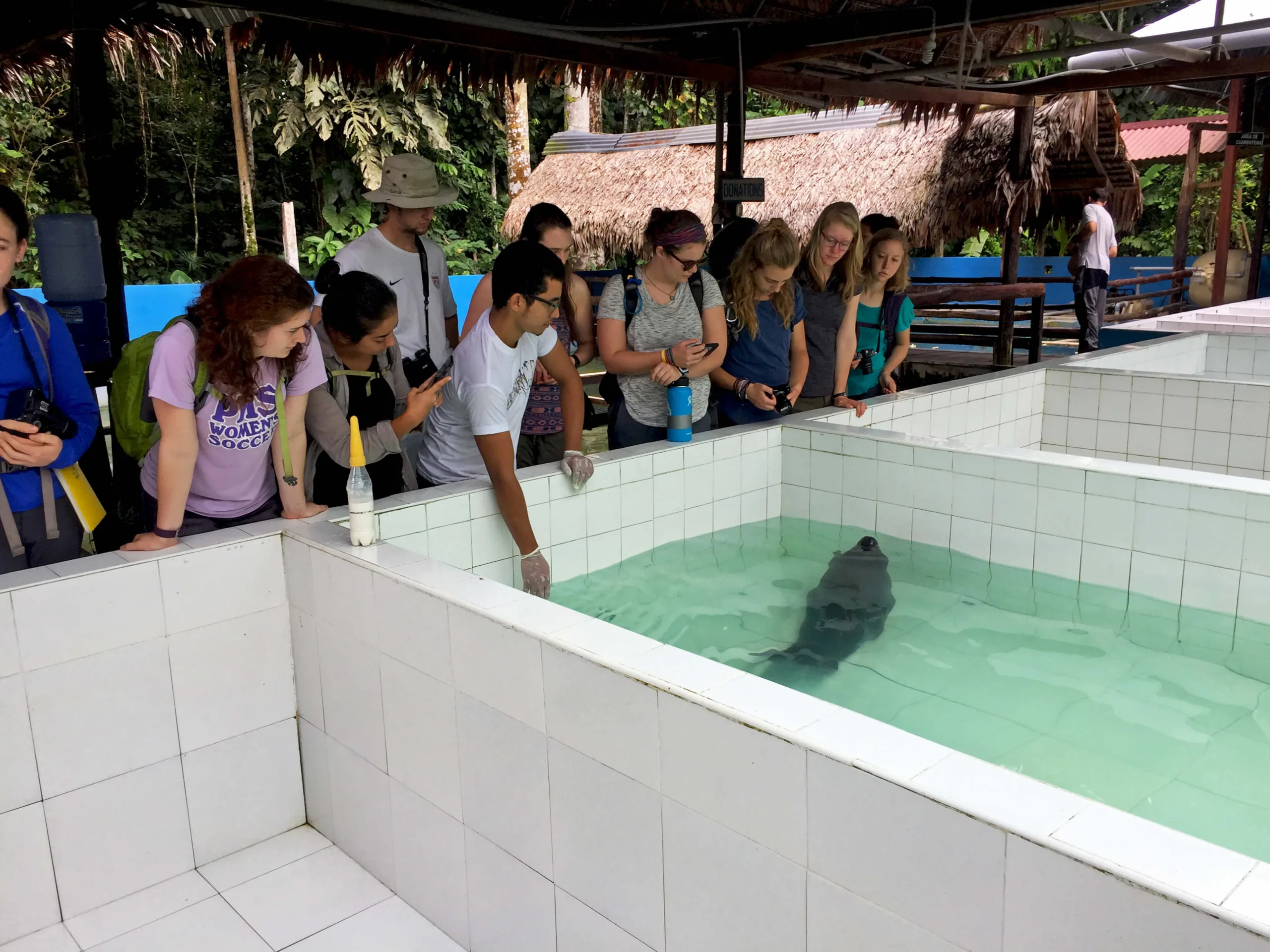
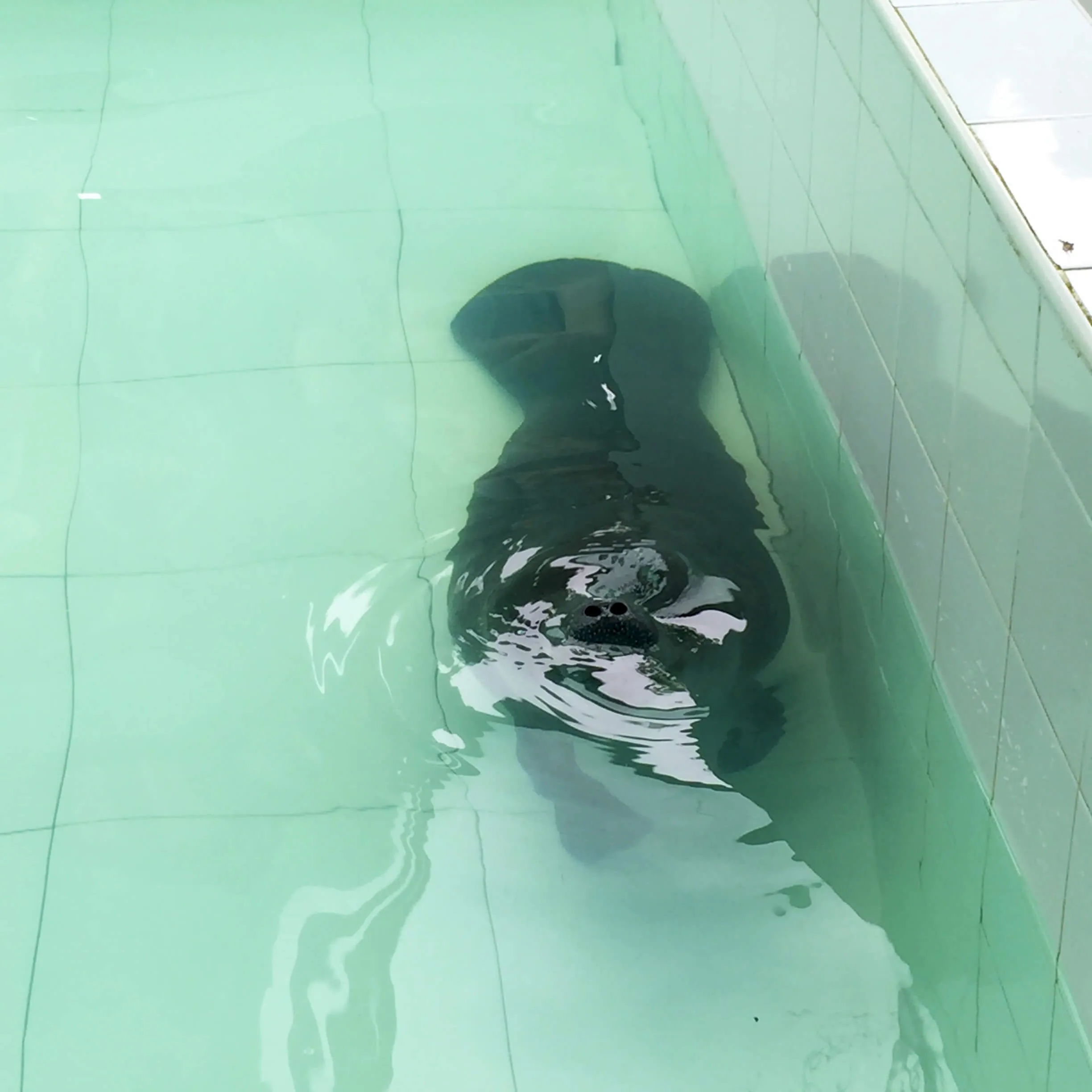
Finally, on March 19, we were visited by the organization Asociación La Restinga, who came bearing a very special gift for us. This organization works to promote a sustainable income source among small and indigenous communities: beekeeping—or more specifically, stingless bee-keeping. Found throughout the Tropics, stingless bees are easier and cheaper to manage than the traditional stinging type because you don’t need any safety equipment. We get to experience this for ourselves because the Asociación kindly gifted us three of our very own hives! The hives live in a little shelter with a tin roof; two are traditional types, boxes with drawers, while one is a hollowed-out tree trunk meant to mimic the bees’ natural habitat. We’ve been entrusted with two different bee species to take care of; that work will involve feeding them and cleaning out their hives once per week. The bees eat a delicious mixture of brown sugar, water and oranges, which we got to taste! After about a month, the fruits of our labor should yield our very own delicious, and medicinally useful, honey.
These experiences showed us some of the real-world, on-the-ground efforts of sustainable development and conservation happening here in Peru. As the semester draws to a close and we approach our Directed Research projects, experiences like these prompt reflections on all we’ve learned here in the Amazon, and the goals we’re here to work toward.
Related Posts

Camila Rojas: Alumni Spotlight⭐

